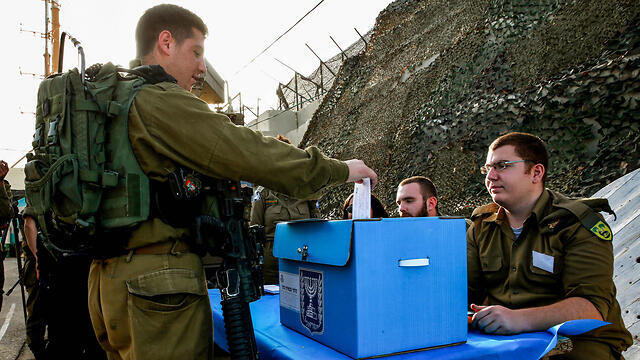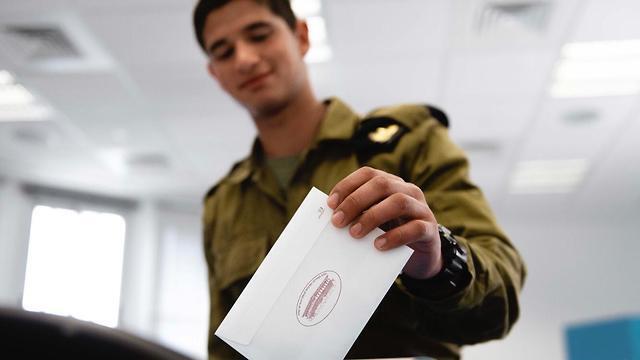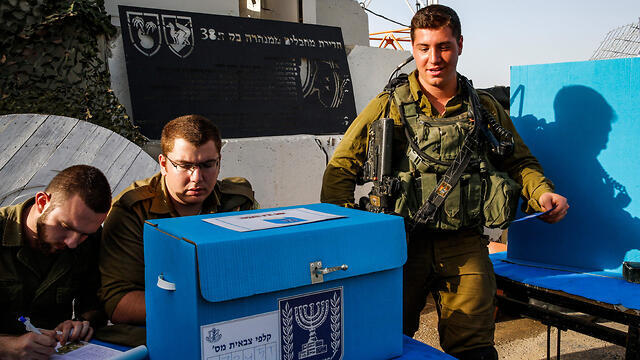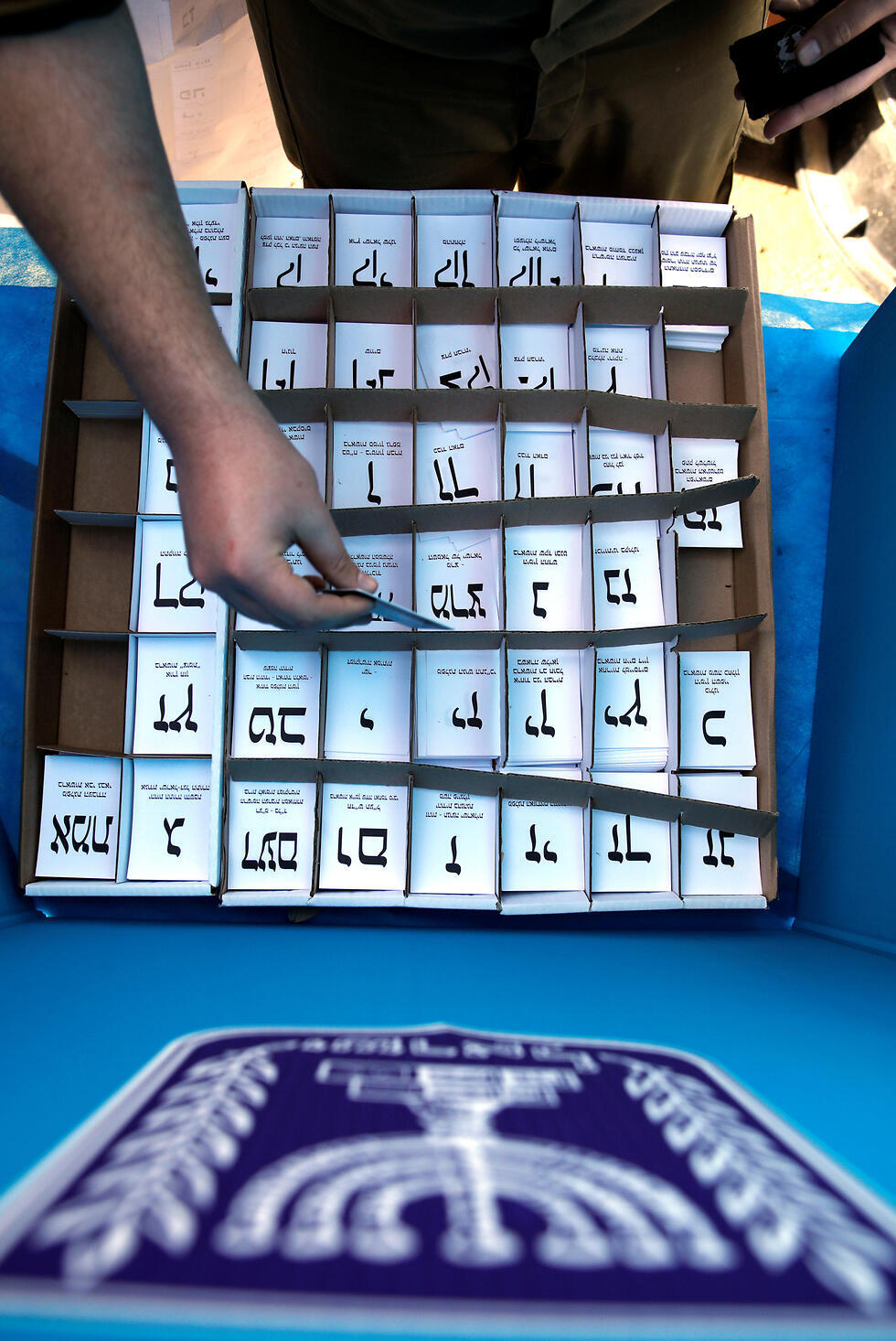Getting your Trinity Audio player ready...
Israeli military personnel officially began voting for the 21th Knesset late Saturday evening - some 72 hours before the rest of the general population heads to the polls on April 9 - in what the head of the elections committee described as "a celebration of democracy."
and Twitter
A total of 643 ballot boxes have been set up for Israel Defense Forces soldiers, with the head of the Central Elections Committee, Justice Hanan Melcer visiting some polling stations and personally monitoring the process.
Melcer spoke with the soldiers and commanders voting at the stations, as well as with the elections officials on the IDF bases, urging them to ensure that the procedure was conducted properly and that each soldier was given the right to vote in private using the secret ballot.
“The Central Elections Committee and the IDF will ensure the elections are fair ... and the soldiers are able to decide who to vote for, like the rest of the Israeli public.”
In order to allow all the soldiers to exercise their right to vote, the military has deployed some 130 mobile polling stations in remote units and outposts.
The Supreme Court justice said the military’s oversight of the voting was “exemplary,” adding that although "early voting was kicked off by Israeli diplomatic missions abroad, the IDF is definitely the main element."
Amit Siri, a 21-year-old soldier from Tel Aviv - who voted for the first time in an election - spoke of his excitement. “Everyone here is talking about the elections and who they’re going to vote for,” he said. “I decided who I’m voting for in the last few days, after a long thought process and discussions with my family, friends, and after reading every platform … It’s a special feeling, voting as a soldier.”
"I noticed that for many soldiers, this is the first election they’re legally allowed to vote in, and they are just as excited as we are,” said Melcer. “The troops are dedicated not only when it comes to their service … but also in their willingness to come to the polling station and cast a vote.
The committee also allowed soldiers in need of financial aid to work as stewards at the polling stations for a salary. "This shows there is a connection between the general public and the troops in terms of concern for the soldiers’ financial well-being,” added Melcer.
Melcer added he also voted as a soldier shortly after the 1973 Yom Kippur War during an election that was postponed following a surprise attack of a coalition of Arab forces. “It was a traumatic atmosphere, it wasn’t easy,” he said.





